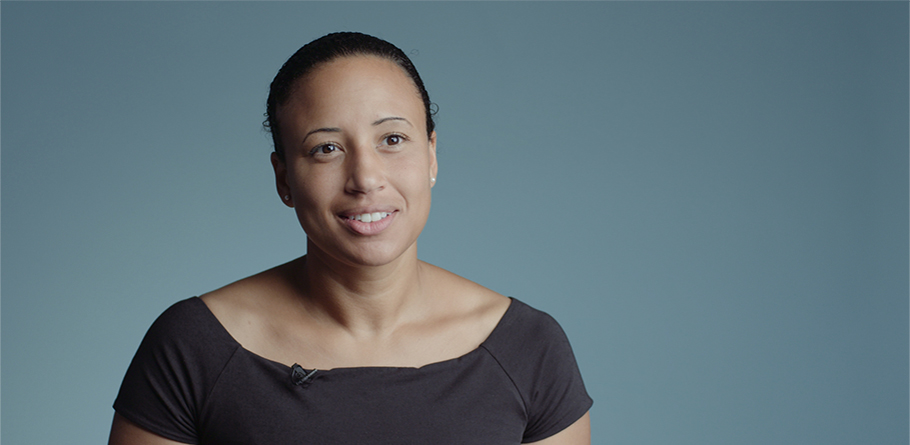This page explains what NJCM does and how it is organised.
The Nederlands Juristen Comité voor de Mensenrechten (NJCM) was established in 1974 as the Dutch section of the International Commission of Jurists (ICJ). It has grown into an authoritative organisation that is committed and has successfully contributed to the protection of human rights in the Netherlands and Dutch foreign policy.
The NJCM is built on volunteers. These skilled and dedicated people keep a close eye on social and political developments. They comment on legislative proposals and government policy, and write shadow reports for international human rights committees. They approach politicians, policymakers, journalists and human rights organisations at both the national and international level: everything to keep the importance of human rights on the agenda.
The NJCM considers it important that a diverse group of professionals has knowledge of human rights and the developments in that field. For that reason, the NJCM organises seminars and other meetings on contemporary issues. In addition, the NJCM has been publishing the Nederlands Tijdschrift voor de Mensenrechten (NTM), the Dutch Journal for Human Rights, since 1976. For more than 40 years, the NTM has been the most important journal on human rights in the Netherlands.
We are stronger united. That is why the NJCM is initiator and member of various forums in the field of human rights, such as Commissie Meijers, the Breed Mensenrechten Overleg (BMO), the Breed Mensenrechten Overleg Nederland (BMO NL), and the Platform Mensenrechteneducatie (PMRE). Recently added to this list is the Mensenrechtendialoog, which focuses on the discussion with the House of Representatives of the Netherlands and the collaboration with Kompass, an organisation that helps NGOs to make a political impact.
PILP-NJCM
Sometimes the public interest calls for legal action. When dialogue, campaigns and lobbying are ineffective on their own. When no other means of protecting human rights exist. This is why the NJCM established the Public Interest Litigation Project (PILP) in 2014 to be able to take action. The PILP-NJCM explores the possibilities of strategic litigation in the field of human rights in the Netherlands.
Pro Bono Connect
After extensive research conducted among law firms, non-governmental organisations (NGOs) and foreign clearinghouses, the NJCM established Pro Bono Connect (PBC) in 2015 as the first public interest clearinghouse in the Netherlands. PBC acts as an intermediary between NGOs and law firms. It links civil society to lawyers from top law firms, to give them free legal advice or assistance in legal proceedings. Sixteen of the Netherlands’ largest law firms are affiliated with PBC.
International Commission of Jurists
The NJCM is the Dutch section of the International Commission of Jurists (ICJ), an international non-governmental organisation based in Geneva that stands up for the rule of law and respect for human rights worldwide by using its legal expertise to develop and strengthen national and international justice systems. The ICJ includes over 70 national sections and affiliated organisations that operate independently. Sixty prominent lawyers are affiliated with the ICJ. From the Netherlands, this is prof. Egbert Myjer. The ICJ has received the first ‘European Human Rights Prize’ (1980), the ‘Wateler Peace Prize’ (1984), the ‘Erasmus Prize’ (1989) and the ‘United Nations Human Rights Prize’ (1993).
Civil Liberties Union for Europe
At the level of the European Union, the NJCM is affiliated with, and one of the founders of, the Civil Liberties Union for Europe (Liberties). This organisation emerged from the collaboration of a number of like-minded organisations from various EU Member States, together forming the European Liberties Platform, and currently works in 17 different states. Liberties, together with its members, carries out advocacy, campaigning and public education activities. Furthermore, reports, legal opinions and policy papers are written to help politicians, diplomats and civil servants working at the EU and national level to put civil liberties into effect when they create, implement or enforce law and policy.
Organisation
The NJCM is an organisation of volunteers and consists of more than a thousand members. The active members unite in thematic working groups around a particular area of law. Each working group is supported by a prominent expert who provides assistance as an external party to the working group.
The NJCM is led by a board consisting of at least a chair, a secretary (vice-chair) and a treasurer. Other board members are responsible for one or more specific portfolios. The board members are also volunteering for the NJCM. They manage a paid secretariat, consisting of an executive director and an administrative assistant. The board is advised by a Board of Recommendation. The board is accountable to the general assembly of members.
Read the NJCM’s Annual Report for 2019 and the Articles of Association of the NJCM here.
The Board of Recommendation consists of:
- mr. dr. Quirine Eijkman, Member of the Netherlands Institute for Human Rights, affiliated with University of Applied Sciences Utrecht and Leiden University
- mr. Folkert Jensma, NRC Handelsblad
- drs. Dirk Steen, Steen Consultancy
Working groups
The active NJCM members are participating in thematic working groups around a specific area of law. They keep a close eye on developments in their field and take action when the situation requires it: sending a letter to the minister or parliament about bills and policy proposals that do not comply with human rights standards or a report to the United Nations about compliance with treaties. The members also organise seminars and other meetings on current topics. Moreover, the members of the working groups conduct legal research for strategic proceedings of PILP-NJCM. More information about the different working groups can be found here.
Interested?
Would you like to support or contribute to the work of NJCM? Become a member!

